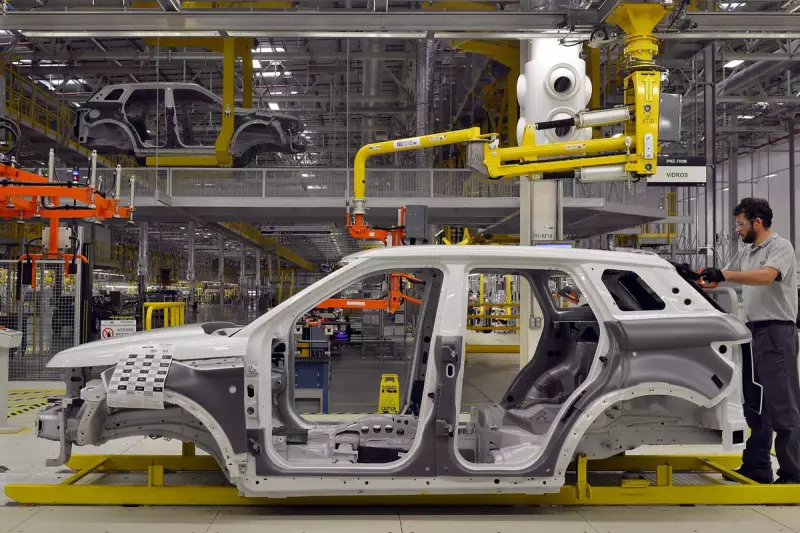
British automotive titan Jaguar Land Rover has been forced to suspend critical production operations following a debilitating cyber attack that crippled its internal systems. The sophisticated breach, which targeted the company's central servers, has sent shockwaves through its UK manufacturing network.
The incident, which unfolded earlier this week, has severely impacted key production facilities, including the major plants in Solihull and Castle Bromwich in the West Midlands, and the Halewood factory in Merseyside. These sites are responsible for producing some of Britain's most iconic vehicles, including the Range Rover, Jaguar F-PACE, and Land Rover Discovery models.
Manufacturing Grinds to a Halt
Insiders report that the cyber attack has effectively severed the vital digital lifelines between the company's manufacturing plants and its central servers. This has resulted in an inability to process and complete new vehicles, bringing production lines to a standstill. The disruption is not just limited to the assembly lines; it has also hampered the company's retail and ordering systems, potentially affecting customer deliveries.
A Growing Threat to Industry
This attack on one of the UK's most prestigious manufacturers highlights the escalating threat that cyber crime poses to critical national infrastructure and industry. It follows a worrying trend of targeted attacks on major corporations, aiming to disrupt operations and extort money. While the exact nature of the attack and the perpetrators remain under investigation, cybersecurity experts are working tirelessly to contain the breach and restore systems.
The company has confirmed it is working with third-party experts to manage the situation but has remained tight-lipped about the specifics, including whether customer data was compromised or if a ransom demand was issued.
Broader Implications for UK Plc
The disruption at Jaguar Land Rover serves as a stark reminder of the vulnerabilities within modern manufacturing. As the industry becomes increasingly reliant on interconnected digital systems, the potential impact of such cyber attacks grows more severe, threatening not just individual companies but entire supply chains and the UK's economic output.





